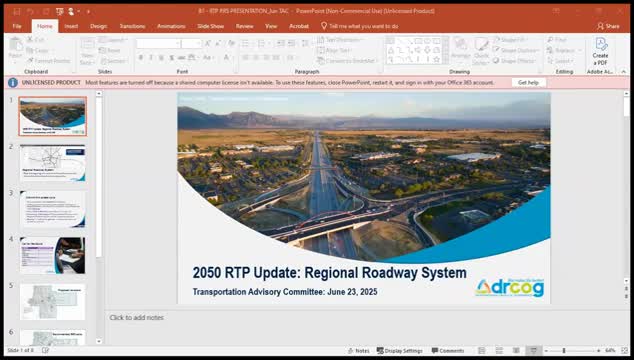Article not found
This article is no longer available. But don't worry—we've gathered other articles that discuss the same topic.
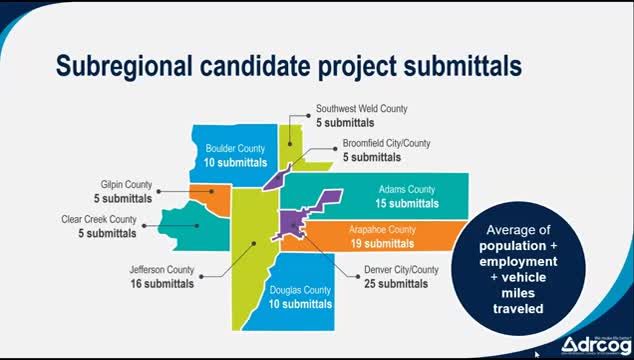
DRCOG compiles Safe Streets and Roads for All applications; nine local grant information forms received
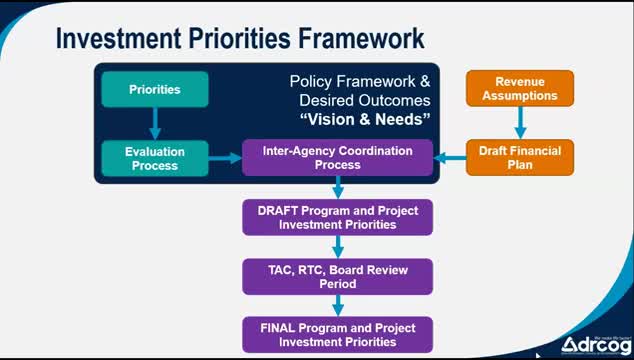
DRCOG readies public draft of Active Transportation Plan and Bicycle Plus guide next month
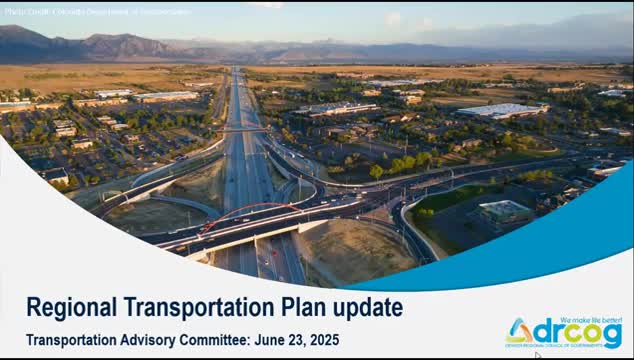
DRCOG staff outline 2050 RTP process, dual-track priorities and solicitation approach
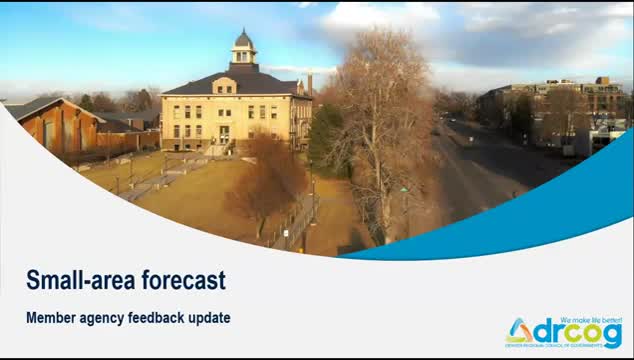
DRCOG staff present 2050 small-area forecast update; member feedback changed block capacities and added scheduled projects
